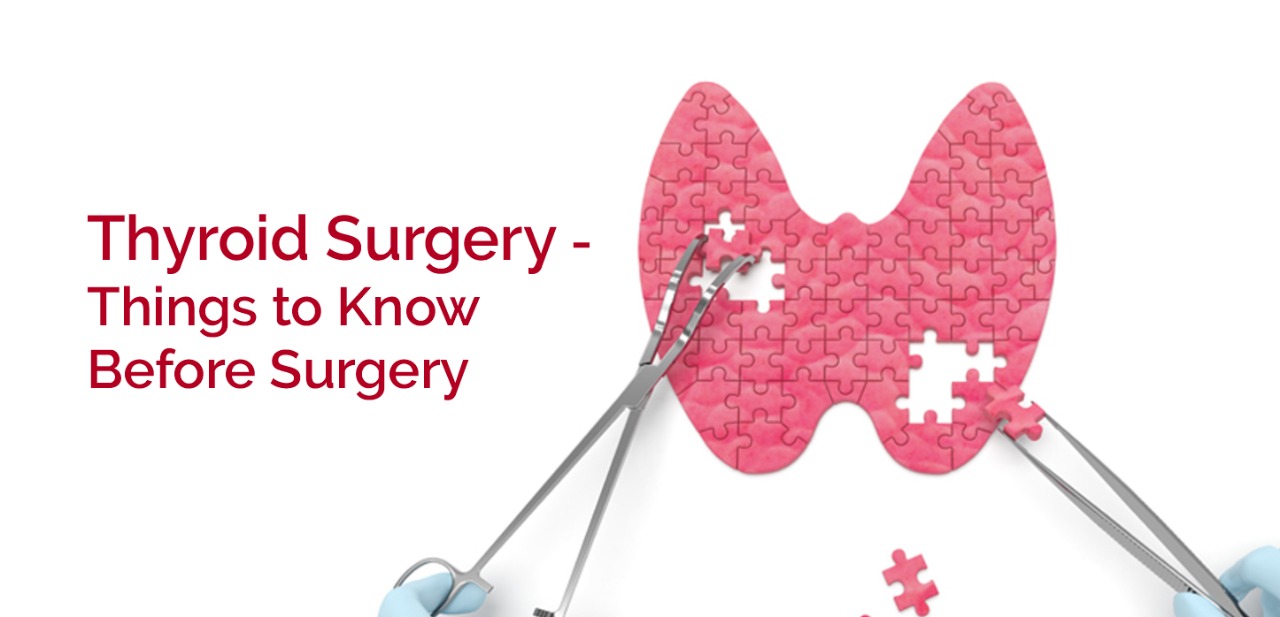

Introduction
In India, over 42 million people have thyroid disorders such as goiter, formation of nodules in the thyroid gland, and inflammation in the thyroid gland. The two common thyroid disorders are hyperthyroidism and hypothyroidism. In these two conditions, the thyroid gland either produces excess or insufficient thyroid hormone, respectively.
If you see any symptoms such as fatigue, excess weight gain, muscle pain or dry skin, you should get a thyroid test done. There are majorly three treatments for thyroid care: oral medicines, radioactive iodine, and thyroid surgery.
When Do I Need a Thyroid Surgery?
If you have hyperthyroidism, you can consult with an Assurance Endocrinologist who will most likely prescribe oral thyroid care medicines. These medicines will help control the production of thyroid hormones in your body. However, in severe thyroid conditions, you might also have to go through thyroid surgery. In medical terms, it is called a thyroidectomy. An endocrinologist will suggest thyroid surgery if you are suffering from any of the following conditions:
1. Nodule in Your Thyroid Region:
Majority of the time, doctors suggest thyroid surgery if there are several benign nodules in your thyroid gland that are causing overproduction of thyroid hormone. These nodules may also cause enlargement of the thyroid gland that can result in difficulty in swallowing and compresses the trachea.
2. Thyroid Cancer Diagnosis:
If your biopsy results confirm that the nodules present in the thyroid gland are cancerous or toxic, you will need thyroid surgery.
3. If Your Body is Allergic to Hyperthyroid Medicines:
Oral medicines are one of the most preferred ways to treat thyroid disorders. However, some people may be allergic to hyperthyroid medicines. In such cases where oral medicines are not a possible cure for hyperthyroid, you will probably have to undergo thyroid surgery.
4. Graves' Disease:
It is an autoimmune disorder where the body starts producing thyroid hormone in excess. In most cases, hyperthyroidism due to Graves' disease is not curable through oral medicines, and thyroid surgery is required.
Things to Know Before Your Thyroid Surgery
If the doctor has recommended thyroid surgery, here are some of the following things that you should know beforehand.
1. Which Surgery Do You Need?
If you have a nodule in your thyroid gland, the endocrinologist will confirm its position in the gland. He will then decide whether a part of your thyroid gland should be removed or the entire gland. If your thyroid gland has become enlarged, or if the nodule is cancerous, you will need a total thyroidectomy. However, if the nodule is present on only one side, the surgeon will remove only that part of the thyroid gland. It is called hemithyroidectomy.
2. How Should You Select a Surgeon?
One of the most crucial decisions to make before thyroid surgery is to choose the right surgeon. It would not only determine the success rate of your thyroid surgery but will also ensure minimum complications. You should consult a surgeon who has performed a significant number of thyroid surgeries.
According to a study conducted on almost 17,000 patients, in thyroid surgeries that were done by surgeons who perform more than 20 surgeries in a year, the chances of complications are reduced to 3%. On the contrary, when surgeries are done by surgeons who perform only one or two surgeries in a year, the chances of complications in thyroid surgery can go up to 87%.
3. What Will Happen After Thyroid Surgery?
The surgeon may remove the partial or total thyroid gland during the surgery. In partial removal of the thyroid gland, you will not have to take thyroid pills after the surgery because the gland will produce thyroid hormone. However, if the gland is completely removed, you will have to take oral medicines for thyroid care.
4. Will You Need to Go Through a Medical Examination Before Thyroid Surgery?
Before any surgery, a medical examination is a must. You should also provide your entire medical history to the surgeon before the surgery. Also, you should ask your doctor if you need to stop taking some medicines before the surgery. Since there are slight chances of uncontrollable bleeding during surgery, the surgeon will ask you to get a blood test before thyroidectomy.
It ensures that you don't have a bleeding disorder. For older patients, doctors suggest an electrocardiogram and a chest x-ray before the surgery to know about any underlying heart condition. People with previous thyroid, spine or vocal surgeries, or any other neck operation need to get their vocal cord evaluated before the surgery.
5. Are There Any Risks Involved During the Surgery?
According to a study, the most common complications post a thyroid surgery are laryngeal nerve injury, metabolic derangements, infection, and bleeding. However, only 3% of patients suffer from postoperative complications after thyroid surgery, and there are almost no chances of mortality.
6. How Long Does the Surgery Last?
A thyroid removal surgery usually lasts for two to three hours. The doctor can ask you to stay in the hospital for a night. Usually, people are discharged the next day after surgery.
Thyroid surgery is a rare treatment for hyperthyroidism. In the majority of cases, this condition is cured by medicines. However, if you need thyroid surgery, you must make sure to choose an experienced thyroid surgeon. Visit NHAssurance to get assistance with your health concerns.